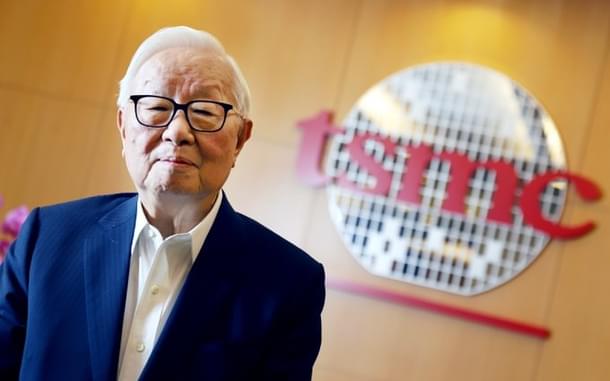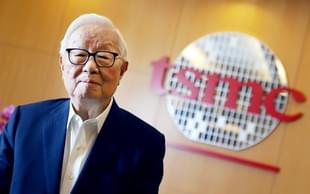Tech
TSMC Founder Morris Chang Supports U.S Effort To Slow China's Progress On Semiconductors But Warns Of Chip Price Surge Due To Onshoring
Swarajya Staff
Mar 19, 2023, 07:47 PM | Updated 07:47 PM IST
Save & read from anywhere!
Bookmark stories for easy access on any device or the Swarajya app.


Washington's concerted efforts to onshore semiconductor chip manufacturing might lead to surges in chip prices and create supply bottlenecks, the founder of Taiwan Semiconductor Manufacturing Co (TSMC), Morris Chang, has warned.
The chip industry icon made these remarks while speaking at an event in Taipei featuring "Chip War" author Chris Miller on Thursday(March 16).
Chang, however, supported the U.S.'s efforts to slow China's progress in advanced chip manufacturing.
"The U.S. started their industrial policy on chips to slow down China's progress. I have no quarrel and I support it," Chang said during the event.
Disagreeing with U.S.'s recent moves to build domestic chip manufacturing, Chang noted that it already holds the lion's share of 39 per cent in the semiconductor sector, including chip manufacturing equipment, chip design and intellectual property. He further noted that the U.S. already has an 11 per cent share of the world semiconductor manufacturing.
Chang expressed disappointment over the U.S. not including Taiwan in its onshoring and friendshoring campaign to increase its domestic chipmaking capacity.
U.S. Secretary of Commerce Gina Raimondo recently said that Taiwan is a 'dangerous place' and that her country cannot rely on it for chip supply.
Chang has repeatedly flagged the efforts by nations to bring chip production onshore in a bid to achieve self-sufficiency in semiconductors, warning that it would increase the cost of producing chips.
"The pervasiveness of semiconductors is primarily due to its ever-cheaper costs...If you give up the competitive advantage in Taiwan and move to the U.S. -- which has already happened -- costs would be 50% higher than in Taiwan." said during the event.
"Onshoring is in the name of security and resiliency," Chang said, adding that even though the defence industry only needs an insignificant amount of chips, the U.S. wants to build large domestic capacity.
"If you give up the competitive advantages of Taiwan and move to the U.S... the costs are going up," Chang said.
90-year-old Chang, a protégé of K T Li, the Taiwanese godfather of technology, is widely credited with scripting TSMC'S meteoric rise as a chip manufacturing giant. TSMC is currently the world's biggest contract chipmaker with over 50% of the market share, supplying major chip developers from Apple, Qualcomm, Nvidia, NXP to Sony and hundreds of others.





